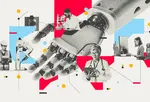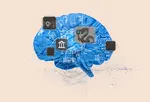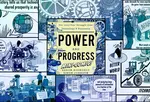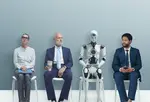Future of Work
Ideas and insights about the future of work from MIT Sloan.
Choose the human path for AI
To realize the greatest gains from artificial intelligence, we must make the future of work more human, not less.
10 quotes for business and management from 2025
These insights from business leaders, scholars, and scientists captured the business mood in 2025.
MIT Sloan reading list: 8 books from 2025
New books this year cover ecosystems, entrepreneurship, dynamic work design, and the paradox of meritocracy.
AI’s missing ingredient: Shared wisdom
We are in the fourth wave of artificial intelligence. In his new book, Alex Pentland says understanding AI from the 1960s, 1980s, and 2000s can help us develop technology that supports shared wisdom.
For manufacturers, listening to workers pays off in productivity
Companies that act on input from front-line employees pay their workers more and experience a productivity bump that offsets those costs.
Who benefits from AI? New comic explores technology’s impact on labor
Download “Power and Progress: The Mini-Comic!” for free. A new comic book adapts MIT Nobel Prize-winning economists’ work on how AI affects workers and shared prosperity.
How artificial intelligence impacts the US labor market
New research from MIT Sloan shows that companies can see substantial gains by putting AI to work — with that growth translating into jobs.
Download: Workforce development in the age of AI
From MIT experts, strategies to transform skills, roles, and human potential across your organization.
Which transportation workers will be most impacted by AI?
New MIT research details the extent to which artificial intelligence will affect jobs, tasks, and costs in the transportation industry.
Why talent management strategies go wrong — and how to fix them
“The Meritocracy Paradox” offers frameworks to help organizations make people-management decisions based on data and evidence rather than intuition.










